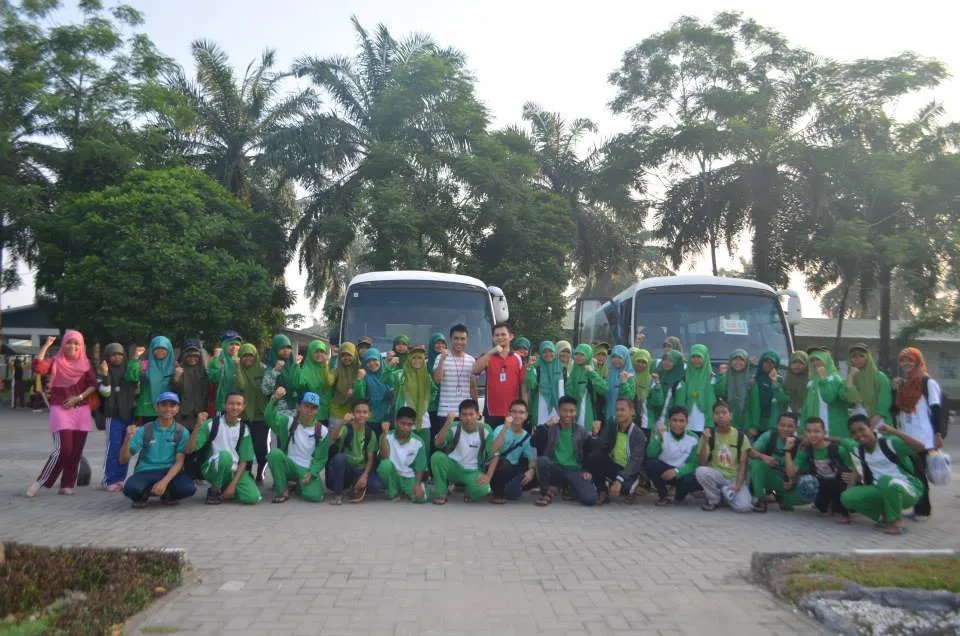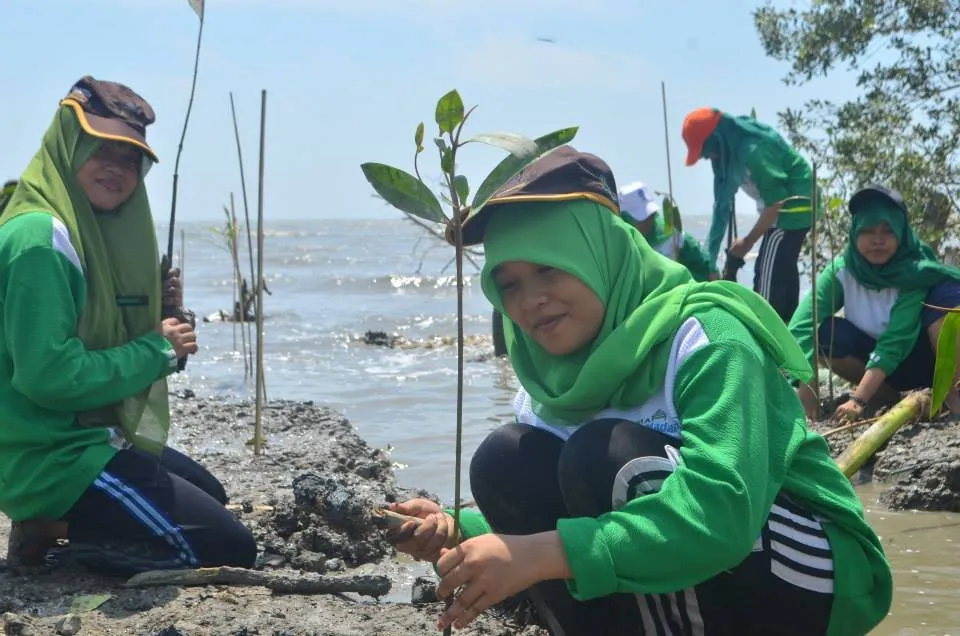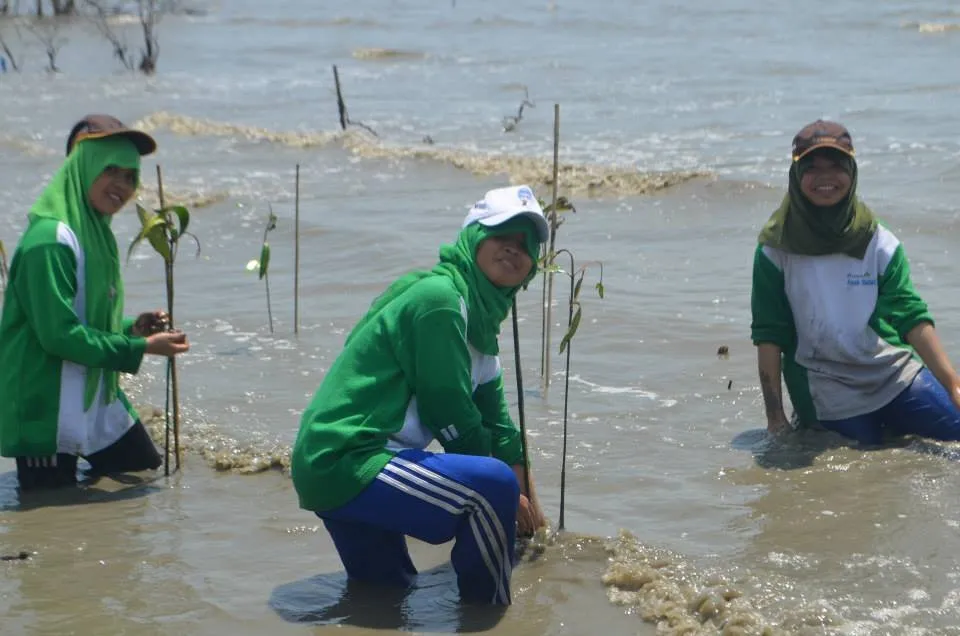I have the most appropriate answer to this question. My answer to the most satisfying experience I have had as a teacher is when my students realize how important the role of the environment is for life. Confused? You will understand after reading the story below.

On April 1, 2014, my school was invited to participate in a mangrove and migratory forest and society economic empowerment program organized by Medan State University in collaboration with society around Tanjung Rejo village, Percut Sei Tuan Subdistrict, Deli Serdang, North Sumatera, Indonesia . Because the number of participants was limited by the committee, one day before the event, March 31, 2014, as the head of the entourage from my school, I gathered the entire students to conduct the selection. They were very enthusiastic.
After choosing 43 students and two partners, I explained how to plant mangrove seeds in the coastal area. I ensured students understood that this activity aimed to prevent coastal abrasion due to tidal seawater. Keep in mind, every adult mangrove tree can feed some organisms like migratory birds, sea snakes, crabs, shrimp, and small insects. Adult mangrove is also the basic ingredient of food making and handicraft of local people who have a sale value. This area can also be used as an environment based place of scientific research.
Then, especially for students, I gave rules that must be obeyed such as:
1. Student must have enough rest
In order to maintain fitness, students were not allowed to stay up late in the night. Coastal weather with the heat of the sun is sometimes very challenging the endurance. Of course, enough rest is a must.
2. Students must not miss breakfast
I did not want any students who fainted. Skipping breakfast can disrupt the function of the body's cells in taking energy. Remember, this activity was very draining.
3. Students must bring supplies
Students followed this activity to plant the mangrove seeds that students have provided. In order to have smooth planting process, students were suggested bringing tools such as small shovels, and small hoes. Students should also ensure complements of personal needs such as uniforms, hats, gloves, change of clothes and drinks.
4. Students should not littering
The bad action that often happens in big events is garbage. So, students should keep clean wherever they were.
5. Students must have a mutual cooperation soul
The committee asked participants to plant dozens of mangrove seeds on a piece of land. Students had to work together to complete the planting on time.
6. Students should not be selfish
This activity was very draining for a long time. Students should be able to override selfish attitudes and accentuate the interests of the group so that the planting of mangrove seeds could run smoothly. Students also had to help each other for the sake of achieving common goals.

The next day, using two school buses, we headed to the location of this activity. There were unique things that I observed there. While students from other schools were busy chatting with their gadgets, my students were actually catching small crabs running into the holes they made as homes. I admit, my students were still innocent. Now I am sorry why I didn’t take their pictures at that time.
My students showed that they really respected me by following the instructions correctly. Moreover, they were very happy when planting each of the mangrove seeds. They didn’t feel disgusted on the black, smelly, sticky mud on their skin and about their clothes. They did it voluntarily. It seemed they appreciated every life that existed in this world. Through this activity, my hope that students understood that we as human beings should keep the environment finally could be realized. I experienced a distinctive satisfaction.


What do you think when I was in my position at that moment? I'm sure you also think this was the most satisfying experience, wasn’t it? Hopefully there will be more students like them who love the environment as much as they love themselves. Thank you for reading my writing. Greetings educators from @jamanfahmi.
Reference
http://humas.unimed.ac.id/unimed-jalin-mou-untuk-konservasi-60-ha-kawasan-hutan-mangrove/
